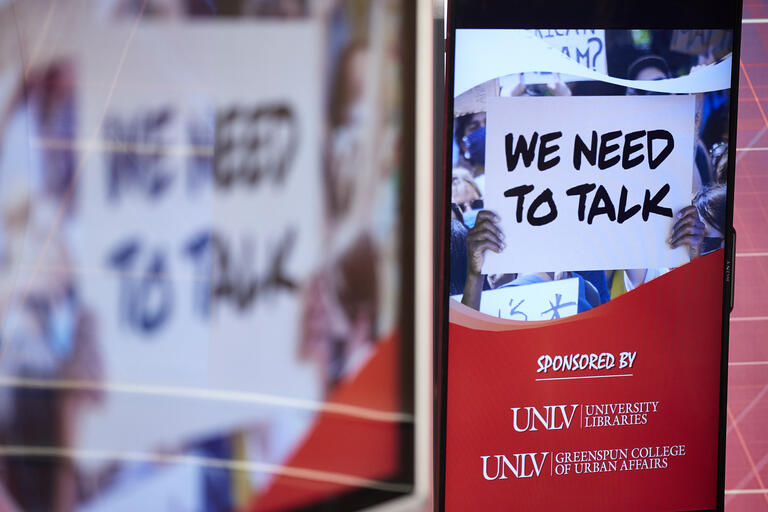Last August, President Biden together with automakers announced a goal to make 50% of all U.S. car and light truck sales by 2030 electric, hydrogen fuel cell, or plug-in hybrid vehicles. The expansion of the electric-vehicle market and clean-energy production has served as a catalyst for the lithium-ion battery industry. A primary driver is the demand for electric vehicles (EVs) with an additional 54 million passenger electric vehicles forecasted to be on roads globally by 2025, up from 12 million today.
UNLV’s Center for Business and Economic Research (CBER) recently released a white paper that makes the case that Nevada is an ideal location for the growing lithium-ion battery industry - a move that could be a boon to the state’s economy.
Forecasts predict a fivefold increase in the global lithium-ion battery market through 2030, from $21.95 billion in 2020 to $115 billion by 2030 — and UNLV economists say Nevada is uniquely positioned to tap into the industry. Nevada is the only U.S. state that encompasses every facet of the lithium-ion battery economy and life cycle, including the mining of natural lithium deposits, research and development, production and assembly, and recycling. The Silver State’s lithium-ion economy employs roughly 9,000 workers, and on the battery manufacturing side alone nearly 60% of U.S. workers are in Nevada.
“We are constantly looking at industries in Nevada that are ready for further expansion to help with economic diversification. Electric vehicles, commercial and home energy storage, drones, consumer electronics – this is where the world is headed,” said CBER director Andrew Woods. “Nevada is uniquely positioned to build upon this industry with some focus and further development to support and attract new companies to our state.”
In addition to electric vehicles, lithium-ion batteries are the preferred method to power the world’s fleet of cell phones, consumer electronics, home power storage, and power grids due to their ability to charge faster and store more electricity than other types of batteries.
To keep pace with demand, the report says, the global lithium supply will need to quadruple in the next 10 years, and at least 30,000 more workers will be needed to staff proposed gigafactories in the U.S. alone by 2025. UNLV economists say Nevada’s assets — including proximity to the mining of lithium and other rare earth minerals in and near the state’s boundaries — puts the Silver State front and center in a world that is ever increasing its demand for electricity generation and storage for everyday items as well as potentially for hotels, restaurants, and large industrial operations.
Though the report makes an optimistic case for Nevada as a future hub for lithium-ion battery manufacturing, it also acknowledges that more research needs to be done on the industry. Topics for further exploration include impediments to industry expansion in Nevada, areas of the battery manufacturing ecosystem on which Nevada should focus, the potential to decrease dependence on overseas facilities and bring supply chain operations fully onshore, the potential supply of lithium meeting demand, and possible spin-off industries that come from specializing in battery production. The report also acknowledges that there are other sources for energy storage and generation such as hydrogen.
The Silver State is home to at least 16 companies in the lithium battery economy, with two facilities in Southern Nevada. UNLV economists say legislative and infrastructure help at the state and federal level could increase Southern Nevada’s commercial capacity.
“The demand for electric vehicles is expected to increase considerably in the coming years and that will drive a commensurate demand for the minerals required in those vehicles, '' said Sean McKenna, executive director of hydrologic sciences at the Desert Research Institute. "Nevada can play a key role in sustainable, domestic production and refining of those minerals.”
Read the white paper in its entirety here.
For 47 years the Center for Business and Economic Research at the UNLV Lee Business School has been Nevada’s premier economic research center. CBER conducts applied and data-driven research to assist business, government, and the community at large. CBER is a public resource that seeks to extend the benefits of UNLV’s expertise in research throughout the state of Nevada and the United States.



